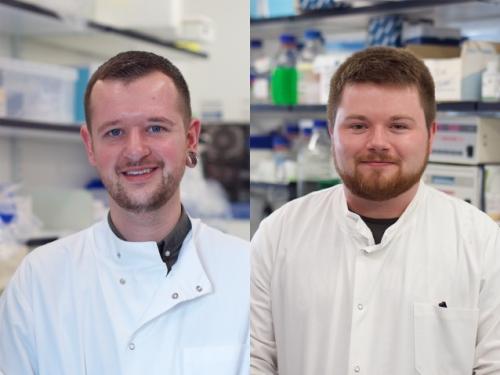
Phosphorylation is a reversible post-translational modification bestowed on proteins, by which phosphate is added or removed from protein substrates. Reversible phosphorylation is capable of regulating proteins in virtually every conceivable way. From activating or inhibiting the function of the protein substrate, to promoting a change in its subcellular localisation, phosphorylation plays a vital aspect of cell physiology. The proper regulation of this reversible process is key for cell viability, and many diseases such as cancer and neurodegenerative pathologies arise because of dysfunctional phospho-control.
Phosphate is added to proteins through the actions of protein kinases and is removed by the protein phosphatases. The balance of these two enzyme activities is key for finetuning our cellular signalling pathways. This knowledge has led to the development of numerous small molecule inhibitors of kinases and, to a lesser extent, phosphatases to both dissect our signalling pathways in the lab, and to treat diseases.
In a latest study published in Cell Chemical Biology, research team from the Sapkota lab led by PhD student duo Luke Fulcher and Luke Simpson demonstrate that it is possible to redirect protein phosphatases to specific phospho-proteins inside cells to cause their dephosphorylation. They showed that by targeting the dephosphorylation of the mitotic spindle protein FAM83D and the autophagy kinase ULK1, the biological functions of these proteins were altered. They named this approach the affinity-directed phosphatase (AdPhosphatase).
This proof-of-principle demonstration that phosphatase activities can be artificially recruited to proteins of interest to trigger their dephosphorylation, holds promise for the development of small molecule phosphatase targeting chimeras (PhosTACs). These hold promise as a unique therapeutic approach for many classes of targets that are currently deemed undruggable.
The paper, published in Cell Chemical Biology on January 30th, can be found here
(Following their PhD research, Luke Fulcher is a postdoctoral research fellow at the Department of Biochemistry in University of Oxford and Luke Simpson is a Drug Discovery Scientist at the Centre for Targeted Protein Degradation in University of Dundee.)

